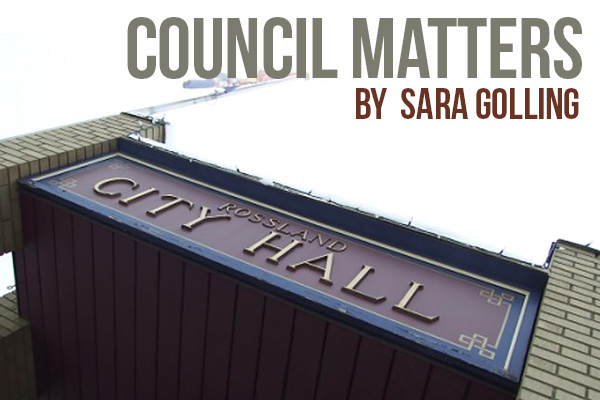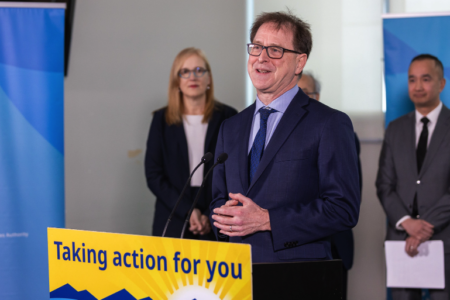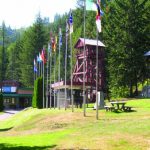Crumbling Pipes and a Cash Crunch!
Rossland City Council — Committee-of-the-Whole meeting, December 15, 2014
Present: Mayor Kathy Moore, and Councillors Aaron Cosbey, Andrew Zwicker, Andy Morel, John Greene, and Lloyd McLellan. Regrets: Marten Kruysse, not yet returned from travels.
This meeting was primarily an information session for Council, with Manager of Public Works Darrin Albo presenting an overview of City operations, and Acting Chief Financial Officer Lois Hunter providing a crash course on City finances. There was a lot of information, Council members had many questions, and the meeting lasted for five hours (with a brief break for some really salty pizza) — from 5:00 PM until 10:00 PM. Discussion was wide-ranging and detailed; in this report I can draw your attention to only a very few of the many items discussed.
Public Works:
Darrin Albo oversees a diverse staff of 15 full-time and 2 part-time employees, and is grateful for a union contract that allows employees to do a variety of tasks as needed, thanks to André Carrel who negotiated that term many years ago. Albo pointed out that the number of employees in Public Works has not changed in 15 years, though they have had to take on additional duties.
Albo mentioned some problems that are a constant drain on City resources (and cost all of us more money on our tax bill), including people pushing or blowing snow back onto the street after the street has been plowed — this is a safety issue as well. Another expense is vandalism, including people who drive vehicles, ATVs, dirt bikes, snowmobiles etc. on our playing fields — this damages the fields and increases maintenance costs. And we taxpayers all pay more.
We rely on snow for winter recreation and much of our community’s economic well-being — but when it falls on our town, it also uses up tax dollars for clearing streets and sidewalks. Albo explained that a 10 to 15 centimeter snowfall costs about $9800 in snow removal for what he referred to as “the old town” — not including Redstone or the Red Mountain base area. Redstone adds another $1500 of expense per “snow event” and Red costs about $2000. Sidewalk clearing and gritting costs from $800 to $1000 per snowfall. That totals about $14,300 for each dump of snow.
Greene asked why salt is not used on downtown sidewalks, as the grit that is used gets stuck in store doors. Albo explained that the thawing caused by salt, and later freezing, on the sidewalks causes the concrete to break down prematurely. Moore asked if we could get smaller grit; Albo acknowledged that this year’s batch seems larger than usual.
Streetlights came up for discussion — the costs of repairing them, who owns them (the City), how many of them we have, and an eventual transition to LED lights. Moore asked if we need as many streetlights as we have; McLellan said we have too many, and they’re too tall. Morel asked about the cost of power for streetlights as they are now; Albo responded that the total cost of power for streetlights this year will be in the neighbourhood of $90,000.
The group discussed the possibility of reducing equipment costs by sharing equipment with nearby municipalities, and partnering with them for better deals on bulk purchases of supplies.
Albo talked about the arena, and pointed out that it would benefit from having a dehumidifier, as moisture is causing structural members to rust, and there is water dripping inside from condensation.
Moore asked if the energy audit recommendations are being implemented; Albo confirmed that they are.
Albo talked about Rossland’s sanitary sewer lines — those are the ones our toilets flush into –did you know we have about 52 kilometers of them? Tree roots invading the sewer lines cause blockages and leaking, both of sewage out of the sewer and of water into the sewer. Another problem is that people cause blockages when they flush the unflushable down their toilets — disposable diapers, baby wipes, and so on.
Albo also reviewed the upcoming change in how Rossland is charged for sewage treatment. We have paid a flat rate so far; this will change to payment based on the volume of sewage that goes down the hill for treatment. The more storm water that we allow to infiltrate our sewer lines, the more we will pay. Long ago, storm water was automatically routed into the sewer lines, and there are still storm-water drains (a number of them are from the roofs of commercial buildings in the downtown core) that drain directly into our sewer lines; the City is working to change that.
The City’s insurance provider and the Interior Health Authority both want the City to fence off the water reservoirs; Albo said that installing fences would cost about half a million dollars, and that maintenance costs on fences tend to be high, so they are putting that off. But he mentioned that people have been damaging the rip-rap on the face of the Ophir dam, which must be repaired — another expense of vandalism, paid for by all of us. The rip-rap protects the dam from erosion and breakdown.
Finances:
Lois Hunter, currently our Acting Chief Financial Officer, works on financial planning, works with the City’s auditors on the year-end results, oversees the financial controls — she approves “every single payment” the City makes, looks after all the City’s investment accounts, including the reserve funds, reports to the provincial government, calculates tax rates, and makes sure that the City is in compliance with our governing legislation.
Hunter works with Council to develop a budget for the coming year and a financial plan for the next five years; but she spoke of the need to look further ahead — into the next twenty-five years, to ensure adequate advance planning and preparation. She pointed out that, like most other communities, Rossland is in a state of “infrastructure deficit” — meaning that much of our infrastructure is old and needs to be replaced, or is breaking down, and that we do not have nearly enough funds set aside to replace everything that needs replacement. She stated that it would cost an estimated $17.7 million to replace all that is now past its expected lifespan. Since we don’t have the money, we develop priorities, based on the cost of each project, and the associated safety risks and liability, and then work on the most urgent projects — and apply for grants whenever possible.
Hunter reviewed the City’s budget for 2014 with Council and responded to councillors’ many questions.
In 2014, community groups received grants from the City totalling $279,751. The City has now received applications for funding for 2015, and the requests add up to a total of $343,500 — an increase (if the requests were all granted) of $63,749.
Hunter then moved to discussion of four major projects that need to be done as soon as possible: Washington Street upgrade, Spokane Street from Columbia to First Avenue, Spokane Street from First Avenue to Second Avenue, and LeRoi Avenue from Spokane to Davis Street. These projects all involve replacing pipes under the pavement. She discussed with Council the need to apply for grants, and explained that projects must be “grant-ready” — with most of their tender-ready engineering drawings already prepared. She sought, and obtained, a resolution from Council (for its next regular meeting) to spend unused funds from this year’s budget for ISL Engineering to complete the work that will enable the City to apply for grants.
Hunter discussed different options for the City to meet increasing expenses: decreasing costs by cutting services or reducing maintenance (which is only a delaying tactic, as it will accelerate deterioration of infrastructure); delaying capital expenditures (which is another delaying tactic, as it only increases our infrastructure deficit); drawing on our already inadequate reserves, depleting them even further; or increasing revenue by raising property taxes, increasing service fees and applying for grants. She suggested that Council consider raising taxes annually to match the rate of inflation; she pointed out that it is unrealistic to expect no change in our property taxes, when the City’s costs for power, fuel, supplies, equipment, and labour are all rising, and the City is expected to extend services, not decrease them — the ultimate result of keeping taxes artificially lower than required to cover costs is “chronic and perpetual underfunding” of infrastructure.
(Earlier, Albo had mentioned an engineering report on the condition of certain old water lines. The report said that the walls of the water pipes are being held together only by the surrounding soil. This is just one example of “infrastructure deficit”.)
Hunter is working toward being able to provide Council with financial reports every month, but her workload now is too heavy, so for the time being she is providing quarterly financial reports — still an improvement over the practice before she arrived. She is also providing Council with a record of all payments made by the City during the past month.
Hunter suggested, and Council set, a schedule of meetings to enable them to have their 2015 budget ready by the legislated deadline, and Council seemed keen to make an earlier start on preparation for the following year’s budget. They were so keen that they decided to begin their Committee-of-the-Whole meetings at 4:00 PM.
After more discussion of various things, such as how to get residents interested in participating in setting community priorities for funding, Moore adjourned the meeting at nearly 10:00 PM. Then your weary reporter trundled home in the crisp and snowless night to contemplate our human desire to have it all without paying for it, and the irrationality of our society’s economic system, and how very primitive we humans seem to be en masse despite our few truly brilliant and far-seeing individuals.
























